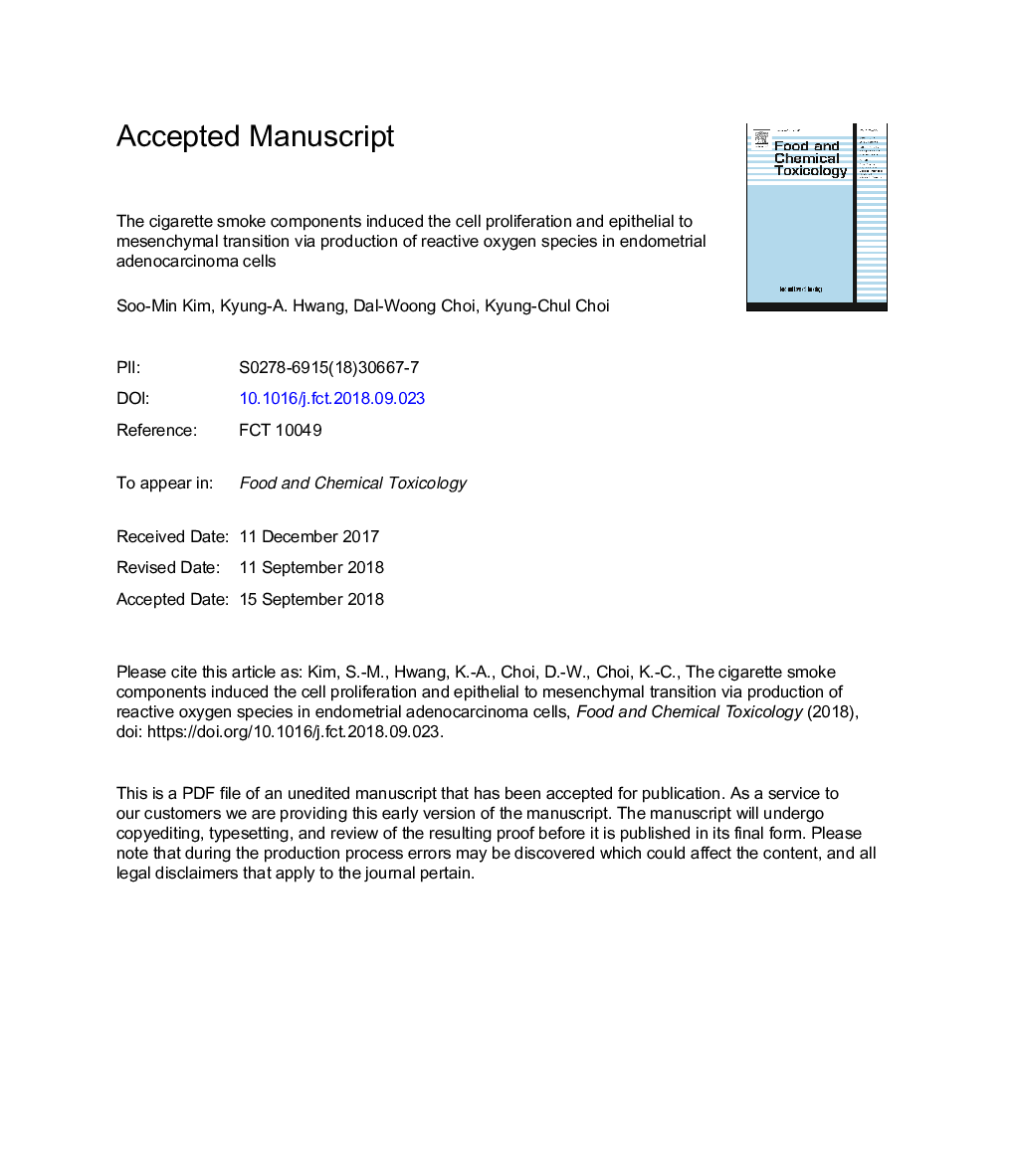| Article ID | Journal | Published Year | Pages | File Type |
|---|---|---|---|---|
| 11033916 | Food and Chemical Toxicology | 2018 | 40 Pages |
Abstract
Cigarette smoke (CS) causes about 480,000 deaths each year worldwide and is well-known to have harmful effects on the human body, leading to heart disease, stroke, lung cancer, and cardiovascular problems. In the present study, the effects of acrylonitrile (AN), benzo(a)pyrene (B(a)P), formaldehyde (FOR), isoprene (ISO), nicotine-derived nitrosamine ketone (NNK), which are the main components of CS, on the proliferation, invasion, and the epithelial-mesenchymal transition (EMT) process of human Ishikawa endometrial adenocarcinoma cells were investigated. Treating Ishikawa cells with CS components resulted in increased cell growth and altered expression of cell cycle-related genes: the protein expression of cyclin D & E increased, while the levels of p21 & p27 were reduced following treatment of these five CS components. In addition, CS components increased the invasion capacity of Ishikawa cells. The expression of the epithelial markers, E-cadherin and occludin, were significantly decreased, while the expression of the mesenchymal marker, N-cadherin, was significantly increased by CS components. In dichloro-dihydro-fluorescein diacetate (H2DCF-DA) assay, ROS production increased by treatment of CS components. The CS components activated the ROS-p38 MAPK-EMT pathway by increasing the level of phosphorylated p38 MAPK and p44/42 (ERK1/2), and by up-regulating Snail and Slug, the transcription factors for EMT. Taken together, these results indicate that CS components can promote progression of endometrial adenocarcinoma via increasing cell proliferation and the ROS-mediated EMT process.
Related Topics
Life Sciences
Agricultural and Biological Sciences
Food Science
Authors
Soo-Min Kim, Kyung-A Hwang, Dal-Woong Choi, Kyung-Chul Choi,
